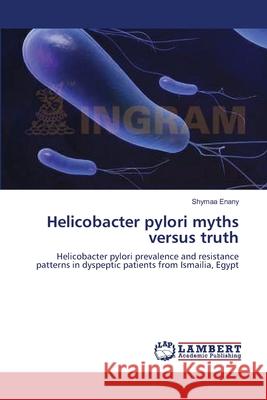Helicobacter pylori myths versus truth » książka
Helicobacter pylori myths versus truth
ISBN-13: 9783659143755 / Angielski / Miękka / 2012 / 116 str.
Helicobacter pylori is one of the most common causes of chronic infections in human. A close relationship is now thought to exist between H. pylori and peptic ulcer disease, gastritis, and certain other gastroduodenal diseases. Also, it is now firmly established that infection with H. pylori is a key etiological factor in peptic ulcer disease, gastric mucosa-associated lymphoid tissue lymphoma, and gastric adenocarcinoma. Furthermore, several studies have shown that eradication of H. pylori plays an important role in the treatment of some gastric-intestinal diseases. Biopsy specimens were collected from 150 dyspeptic patients. One hundred and seven were positive for H. pylori. Susceptibilities were determined for these isolates by disc diffusion methods. The prevalence of positive H. pylori isolates among the dyspeptic patients was 71.33%. The resistance rate to metronidazole, tetracycline, clarithromycin, and amoxicillin was 86%, 7.4%, 5.6%, and 0.9%, respectively. Metronidazole resistance was a character of H. pylori isolates within most patients in Ismailia, while amoxicillin resistance is rare.











